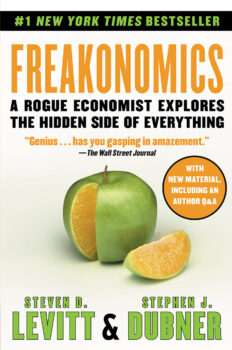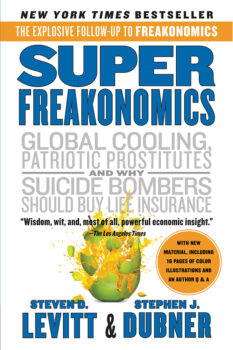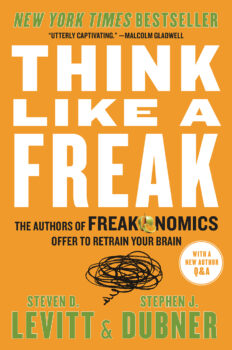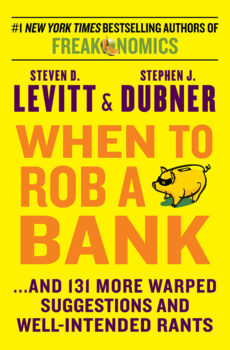The Secret Life of a C.E.O.
What Does a C.E.O. Actually Do?
They’re paid a fortune — but for what, exactly? What makes a good C.E.O. — and how can you even tell? Is “leadership science” a real thing — or just airport-bookstore mumbo jumbo? We put these questions to Mark Zuckerberg, Richard Branson, Indra Nooyi, Satya Nadella, Jack Welch, Ray Dalio, Carol Bartz, David Rubenstein, and Ellen Pao. (Part 1 of a special series, “The Secret Life of a C.E.O.”)
How to Become a C.E.O.
Mark Zuckerberg’s dentist dad was an early adopter of digital x-rays. Jack Welch blew the roof off a factory. Carol Bartz was a Wisconsin farm girl who got into computers. No two C.E.O.’s have the same origin story — so we tell them all! How the leaders of Facebook, G.E., Yahoo!, PepsiCo, Microsoft, Virgin, the Carlyle Group, Reddit, and Bridgewater Associates made it to the top. (Part 2 of a special series, “The Secret Life of a C.E.O.”)
“I Wasn’t Stupid Enough to Say This Could Be Done Overnight”
Indra Nooyi became C.E.O. of PepsiCo just in time for a global financial meltdown. She also had a portfolio full of junk food just as the world decided that junk food is borderline toxic. Here’s the story of how she overhauled that portfolio, stared down activist investors, and learned to “leave the crown in the garage.” (Part 3 of a special series, “The Secret Life of a C.E.O.”)
It’s Your Problem Now
No, it’s not your fault the economy crashed. Or that consumer preferences changed. Or that new technologies have blown apart your business model. But if you’re the C.E.O., it is your problem. So what are you going to do about it? First-hand stories of disaster (and triumph) from Mark Zuckerberg, Steve Ballmer, Satya Nadella, Jack Welch, Ellen Pao, Richard Branson, and more. (Part 4 of a special series, “The Secret Life of a C.E.O.”)
After the Glass Ceiling, a Glass Cliff
Only 5 percent of Fortune 500 companies are run by women. Why? Research shows that female executives are more likely to be put in charge of firms that are already in crisis. Are they being set up to fail? (Part 5 of a special series, “The Secret Life of a C.E.O.”)
Letting Go
If you’re a C.E.O., there are a lot of ways to leave your job, from abrupt firing to carefully planned succession (which may still go spectacularly wrong). In this final episode of our “Secret Life of a C.E.O.” series, we hear those stories and many more. Also: what happens when you no longer have a corner office to go to — and how will you spend all that money?
Extra: Richard Branson Full Interview
Stephen Dubner’s conversation with the Virgin Group founder, recorded for the Freakonomics Radio series “The Secret Life of a C.E.O.”
Extra: David Rubenstein Full Interview
Stephen Dubner’s conversation with David Rubenstein, co-founder of the Carlyle Group, one of the most storied private-equity firms in history. We spoke with Rubenstein for the Freakonomics Radio series “The Secret Life of a C.E.O.”
Extra: Satya Nadella Full Interview
Stephen Dubner’s conversation with the C.E.O. of Microsoft, recorded for the Freakonomics Radio series “The Secret Life of a C.E.O.”
Extra: Jack Welch Full Interview
Stephen Dubner’s conversation with the former longtime C.E.O. of General Electric, recorded for the Freakonomics Radio series “The Secret Life of a C.E.O.”
Extra: Carol Bartz Full Interview
Stephen Dubner’s conversation with the former C.E.O. of Yahoo, recorded for the Freakonomics Radio series “The Secret Life of a C.E.O.”
Extra: Mark Zuckerberg Full Interview
Stephen Dubner’s conversation with the Facebook founder and C.E.O., recorded for the Freakonomics Radio series “The Secret Life of a C.E.O.”
Extra: Ray Dalio Full Interview
Stephen Dubner’s conversation with the founder and longtime C.E.O. of Bridgewater Associates, recorded for the Freakonomics Radio series “The Secret Life of a C.E.O.”
A Conversation With PepsiCo C.E.O. Indra Nooyi (Update)
One of the world’s biggest and best-known companies just announced that its C.E.O. would be stepping down in the fall. We interviewed her as part of our series “The Secret Life of a C.E.O.,” and we thought you might like to hear that episode again, or for the first time if you missed it back then.
Other episodes about C.E.O.s
Can an Industrial Giant Become a Tech Darling?
The Ford Motor Company is ditching its legacy sedans, doubling down on trucks, and trying to steer its stock price out of a long skid. But C.E.O. Jim Hackett has even bigger plans: to turn a century-old automaker into the nucleus of a “transportation operating system.” Is Hackett just whistling past the graveyard, or does he see what others can’t?
How Spotify Saved the Music Industry (But Not Necessarily Musicians)
Daniel Ek, a 23-year-old Swede who grew up on pirated music, made the record labels an offer they couldn’t refuse: a legal platform to stream all the world’s music. Spotify reversed the labels’ fortunes, made Ek rich, and thrilled millions of music fans. But what has it done for all those musicians stuck in the long tail?
23andMe (and You, and Everyone Else)
The revolution in home DNA testing is giving consumers important, possibly life-changing information. It’s also building a gigantic database that could lead to medical breakthroughs. But how will you deal with upsetting news? What if your privacy is compromised? And are you prepared to have your DNA monetized? We speak with Anne Wojcicki, founder and C.E.O. of 23andMe.
What Do Nancy Pelosi, Taylor Swift, and Serena Williams Have in Common?
They — along with a great many other high-achieving women — were all once Girl Scouts. So was Sylvia Acevedo. Raised in a poor, immigrant family, she was told that “girls like her” didn’t go to college. But she did, and then became a rocket scientist and tech executive. Now she’s C.E.O. of the very organization she credits with shaping her life. Acevedo tells us how the Girl Scouts are trying to stay relevant, why they’re suing the Boy Scouts, and how they sell so many cookies.
How to Succeed by Being Authentic (Hint: Carefully)
John Mackey, the C.E.O. of Whole Foods, has learned the perils of speaking his mind. But he still says what he thinks about everything from “conscious leadership” to the behavioral roots of the obesity epidemic. He also argues for a style of capitalism and politics that at this moment seems like a fantasy. What does he know that we don’t?
Is it Too Late for General Motors to Go Electric?
G.M. produces more than 20 times as many cars as Tesla, but Tesla is worth nearly 10 times as much. Mary Barra, the C.E.O. of G.M., is trying to fix that. We speak with her about the race toward an electrified (and autonomous) future, China and Trump, and what it’s like to be the “fifth-most powerful woman in the world.”
Jeff Immelt Knows He Let You Down
Not so long ago, G.E. was the most valuable company in the world, a conglomerate that included everything from light bulbs and jet engines to financial services and The Apprentice. Now it’s selling off body parts to survive. What does the C.E.O. who presided over the decline have to say for himself?
Ari Emanuel Is Never Indifferent
He turned a small Hollywood talent agency into a massive sports-and-entertainment empire. In a freewheeling conversation, he explains how he did it and why it nearly killed him.
Satya Nadella’s Intelligence Is Not Artificial
But as C.E.O. of the resurgent Microsoft, he is firmly at the center of the A.I. revolution. We speak with him about the perils and blessings of A.I., Google vs. Bing, the Microsoft succession plan — and why his favorite use of ChatGPT is translating poetry.
Are Two C.E.O.s Better Than One?
If two parents can run a family, why shouldn’t two executives run a company? We dig into the research and hear firsthand stories of both triumph and disaster. Also: lessons from computer programmers, Simon and Garfunkel, and bears versus alligators.
Is This “The Worst Job in Corporate America” — or Maybe the Best?
John Ray is an emergency C.E.O., a bankruptcy expert who takes over companies that have succumbed to failure or fraud. He’s currently cleaning up the mess left by alleged crypto scammer Sam Bankman-Fried. And he loves it.




